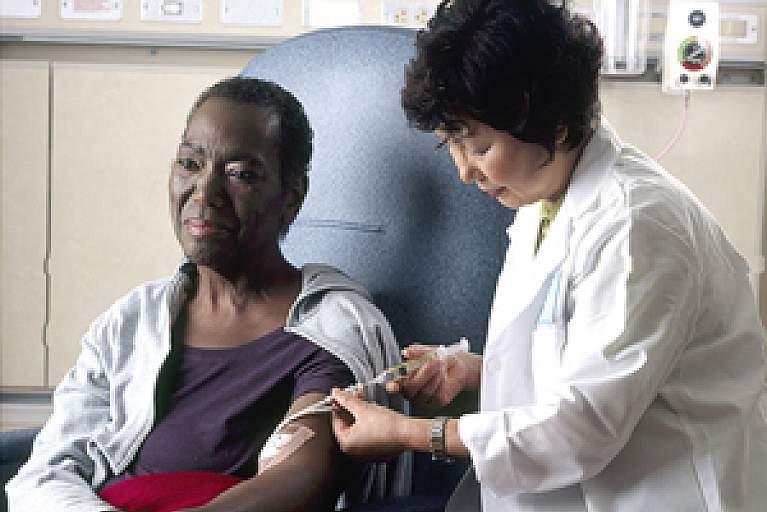The cancer patient's quality of life needs to be considered when studying the effectiveness of drug trials, including chemotherapy. Photo courtesy of
National Institutes of Health
Oct. 2 (UPI) -- Researchers have determined the cancer patient's quality of life needs to be considered when studying the effectiveness of drug trials.
Reviewed and quantitatively analyzed were 52 articles reporting on 38 randomized clinical trials involving 13,979 cancer patients across 12 cancer types. According to the findings, published Friday in the Journal of the American Medical Association Internal Medicine, there was no significant association between survival when the disease is not getting worse, or "progression-free survival, and health-related quality of life.
"Given the increased use of progression-free survival as the primary outcome in new oncology drug trials, and uncertainty of overall survival, it remains possible that patients are receiving toxic and/or expensive treatments without experiencing important benefit," senior author Dr. Feng Xie, a professor of the Department of Health Research Methods, Evidence, and Impact at McMaster University in Canada, said in a press release.
The human cancer clinical trials were published from January 2000 to May 2016 for a total of 35,960 records. The researchers included a list of drugs approved by the U.S. Food and Drug Administration based on progression-free survival benefit but set no language limitations.
The FDA used progression-free survival as a primary end point in improving at least a dozen drugs between 2005 and 2010.
"There are only two reasons to use progression-free survival as a valid end point in oncology," Xie said. "One is that it is a valid surrogate marker for overall survival. The second is the assumption that patients who live longer without disease progression will have better health-related quality of life, even without longer survival."
Xie said trials investigators "should measure health-related quality of life directly and accurately."
"Access to these types of drugs is costing our healthcare system a lot of money, and the troubling fact is that we do not have strong enough evidence to show that some of these drugs can extend a patient's life or improve their quality of life," Xie added.















